Let’s be honest, menopause can feel like your body switched the rules without telling you. One day you’re cruising along, and the next? The scale won’t budge, your jeans feel snug, and your energy’s on a rollercoaster. If that sounds familiar, many are right there with you — you’re a part of a strong community.
As a nutritionist and menopause wellness coach, I’ve heard it all:
“I’m eating the same but gaining weight!”
“Why is everything going straight to my belly?”
“Is my metabolism broken?!”
The good news: Your body is not broken. It’s just evolving.
And with the right support, you can feel strong, vibrant, and more in tune with yourself than ever before.
So instead of crash diets or punishing workouts, if you’re wondering how to lose weight during menopause in a way that works with your hormones instead of against them, this guide is for you.
Grab a cup of tea, take a deep breath — YOU got this!
Here are 10 tips to help you lose weight during menopause (and feel amazing while doing it):
1. Understand the Cortisol Connection
One of the most overlooked tips when exploring how to lose weight during menopause is managing cortisol, your body’s primary stress hormone. During menopause, cortisol levels can become imbalanced due to declining estrogen, leading to increased abdominal fat and stubborn weight gain.
Try this:
Support your adrenals with stress-relief practices like deep breathing, gentle yoga, and herbal support (e.g., ashwagandha or holy basil). Prioritize rest and relaxation to help calm your nervous system.
2. Balance Your Insulin
Insulin resistance often increases during menopause, making it harder for your body to burn fat. Blood sugar spikes trigger fat storage — especially around your belly.
Tip:
Focus on low-glycemic meals combining clean protein, healthy fats, and fiber-rich, non-starchy vegetables. Avoid refined carbs and starches like white potatoes, rice, oats, and corn. Instead, try:
- Steamed cauliflower or parsnip mash
- Zucchini noodles or spaghetti squash
- Lentil or chickpea-based pasta (in moderation)
3. Embrace Healthy Fats
Contrary to popular belief, fats are essential for weight management during menopause. Healthy fats are essential for hormone production, brain health, and long-lasting satiety. They also help reduce inflammation, which is key in midlife wellness.
Add these to your plate:
Avocados, chia seeds, flaxseeds, walnuts, hemp seeds, and avocado oil for cooking (its high smoke point makes it safer for heat). Use olive oil for dressings or cold dishes.
4. Prioritize Protein (Especially in the Morning)
Protein is a metabolic powerhouse. It supports lean muscle maintenance, which is critical for a healthy metabolism as estrogen declines.
How much?
Aim for at least 20-30g of clean protein per meal. Think:
- Pasture-raised eggs
- Wild-caught salmon or sardines
- Organic chicken or turkey
- Plant-based protein powder (no soy)
My Gift To You! 💝
Grab the e-book and printable copy of this guide! Just fill put your name and email below, and I’ll send it right away!
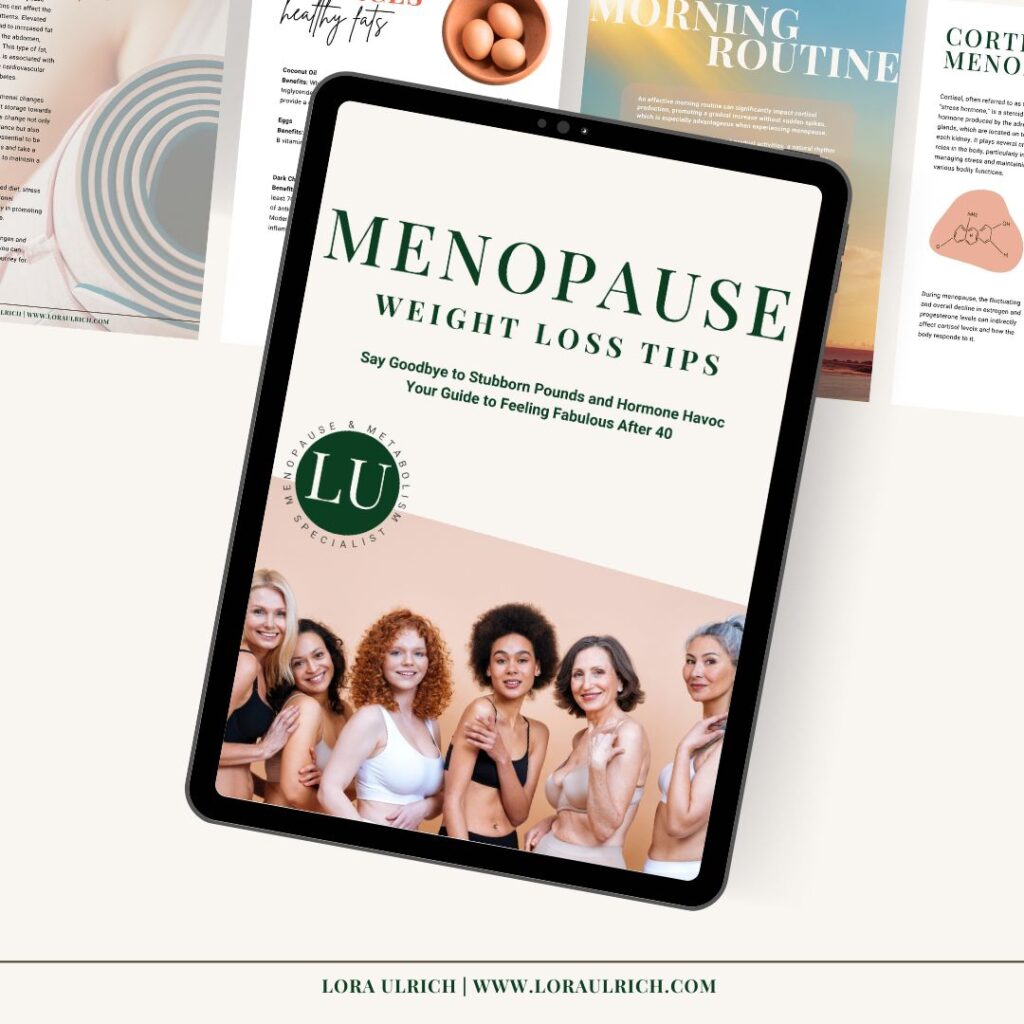
5. Build (and Keep) Lean Muscle
As estrogen drops, women naturally lose muscle mass — which lowers metabolic rate.
Move this way:
Strength training 2-3x per week to build muscle, burn fat, and improve insulin sensitivity. Use body weight, resistance bands, or light weights — whichever works best for your current fitness level.
6. Consider Supportive Supplements
Your body may need extra support during this hormonal transition.
My Top Picks:
- Magnesium – relaxation + sleep
- Omega-3s – anti-inflammatory
- Vitamin D3/K2 – bone + immune health
- Adaptogens – balance stress hormones
- Menopause-specific blends for EstroPro or Stress Relief
Click the button below to explore my curated supplements to support your menopause wellness journey and healthy weight loss!
7. Establish a Metabolism-Boosting Morning Routine
Your morning routine sets the tone for cortisol balance and metabolic health.
Try this combo:
- Hydrate wit lemon or water or an electrolyte-rich drink.
- Light stretching or a short outdoor walk.
- Eat a protein-rich breakfast within 60-90 minutes of waking.
Source: UChicago Medicine
8. Stay Hydrated & Support Gentle Detoxification
Dehydration slows down metabolism and interferes with your body’s natural detox pathways.
Hydration tips:
- Drink half of your body weight in ounces of filtered water.
- Add lemon, cucumber, or fresh herbs like mint.
- Eat cruciferous veggies (broccoli, kale, cabbage) to support liver detox
- Try herbal teas like dandelion root or nettle.
9. Focus on Nutrient-Dense Foods, Whole Foods
Rather than restricting calories, nourish your body with anti-inflammatory foods that support hormone balance and a healthy weight.
Choose:
- Leafy Greens – spinach, arugula, swiss chard
- Colorful non-starchy veggies – peppers, zucchini, cauliflower
- Legumes – chickpeas, lentils
- Berries – low glycemic: strawberries, blueberries, goji berries
- Herbs and spices – turmeric, rosemary, cinnamon
Each meal should include at least 2 cups of vegetables to keep it fiber-rich and filling.
Source: Mayo Clinic
10. Get Consistent, Quality Sleep
Sleep is your secret weapon. Poor sleep increases cortisol and disrupts gherlin/leptin — the hormones that regulate hunger.
Better sleep habits:
- Establish a calming wind-down routine
- Keep your room dark, quiet, and cool
- Avoid screens and caffeine in the evening
- Use magnesium supplements or calming teas (e.g., chamomile, lemon balm)
Source: Columbian Doctors
For more tips on how to lose weight during menopause…
Download Your FREE Menopause Weight Loss Tips for in-depth guidance, practical strategies, and see real results!
Remember, you have the power to feel great and love your body during menopause and beyond. These menopause weight loss tips are just the beginning of your journey to optimal health and wellbeing.
For More Personalized Support…
Book your complimentary 15-minute breakthrough session to talk about your goals and how I can help you achieve them! 💚
More Resources to Support Your Menopause Wellness Journey
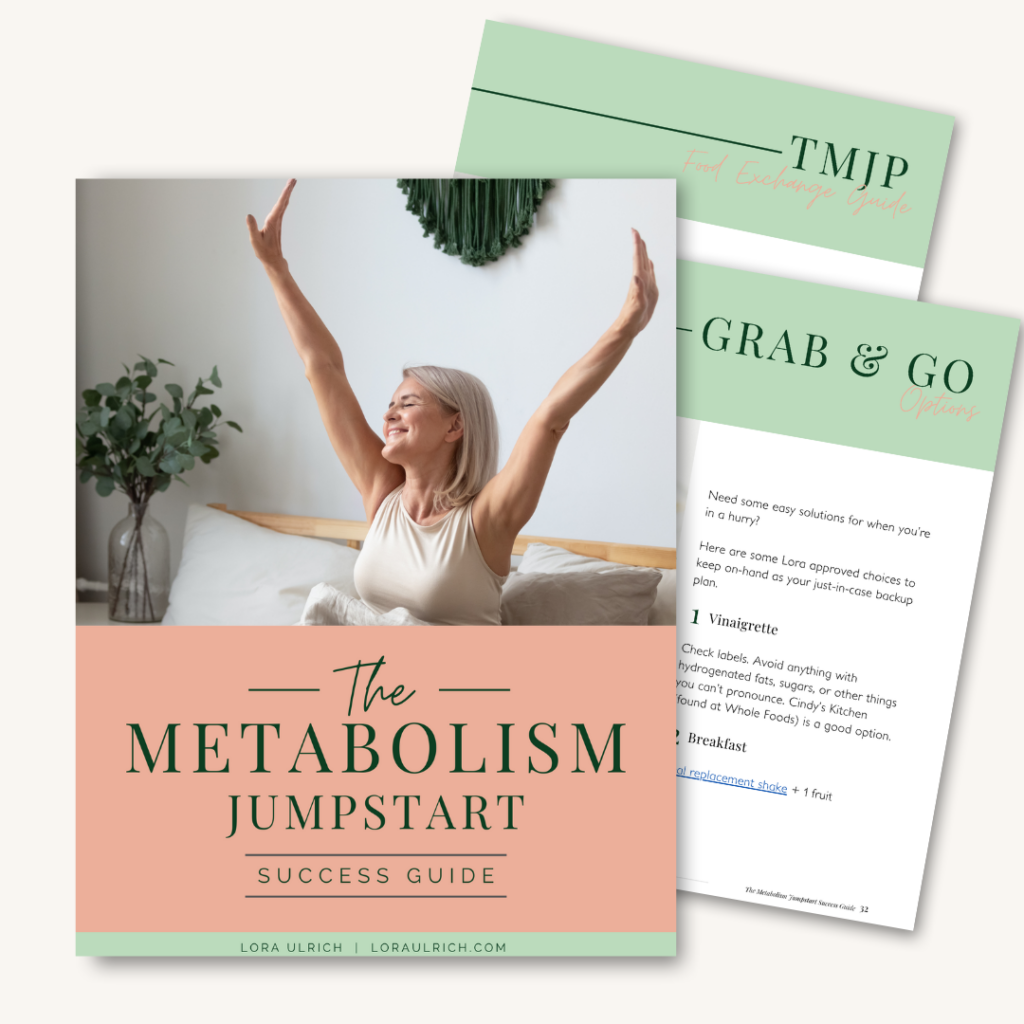
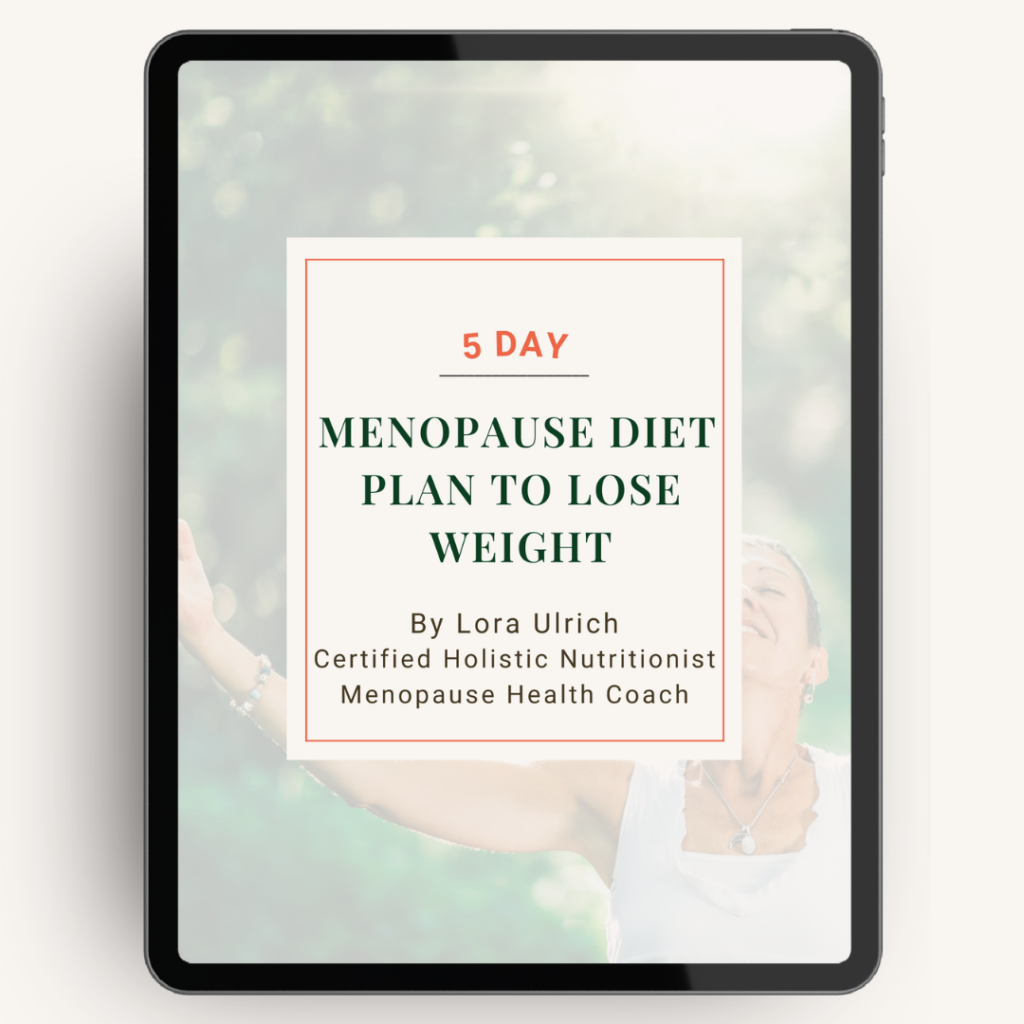
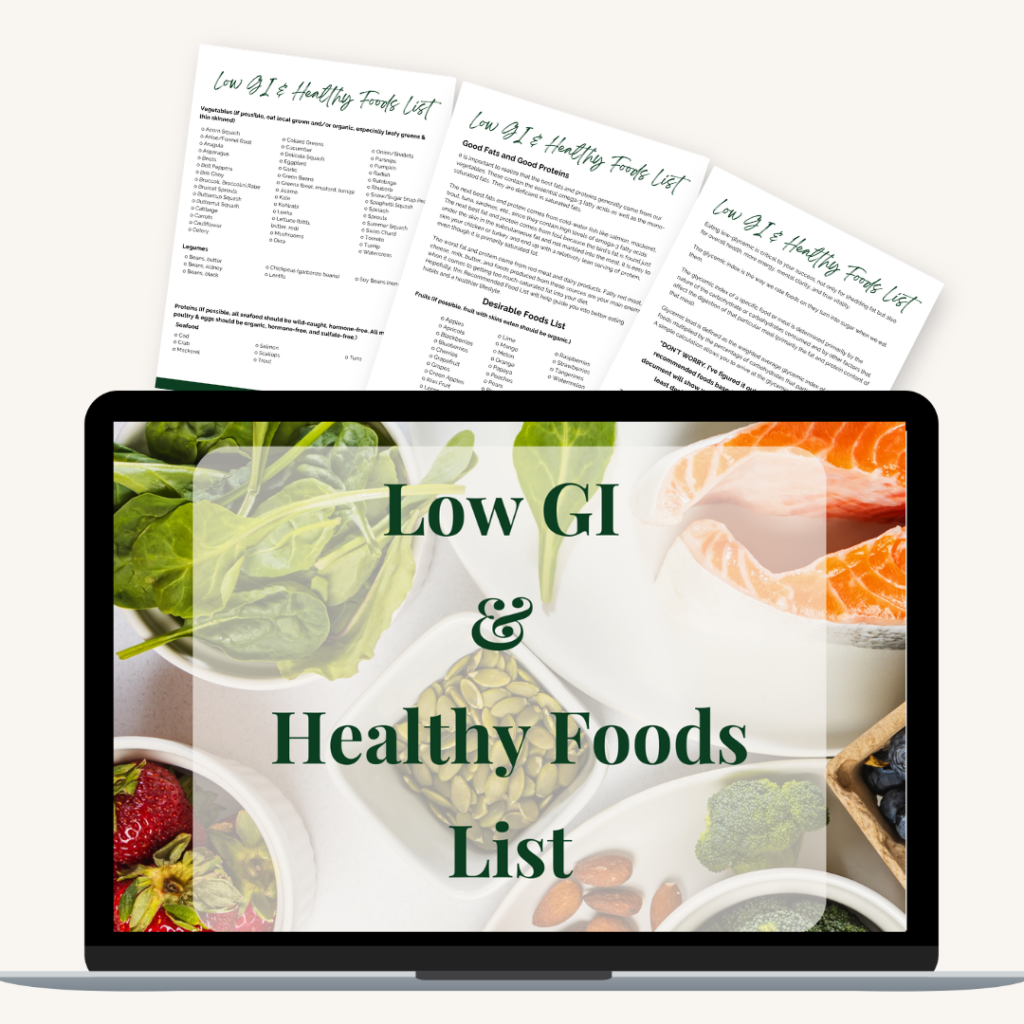
FAQs about How To Lose Weight During Menopause
Yes. With the right hormone-friendly strategies, weight loss during menopause is absolutely possible.
Focus on blood sugar balance, strength training, stress reduction, quality sleep, and eating nutrient-dense whole foods.
Hormonal shifts (like lower estrogen), insulin resistance, elevated cortisol, muscle loss, and poor sleep can all contribute.
A low-glycemic, anti-inflammatory diet rich in clean protein, healthy fats, fiber, and colorful non-starchy veggies works best.
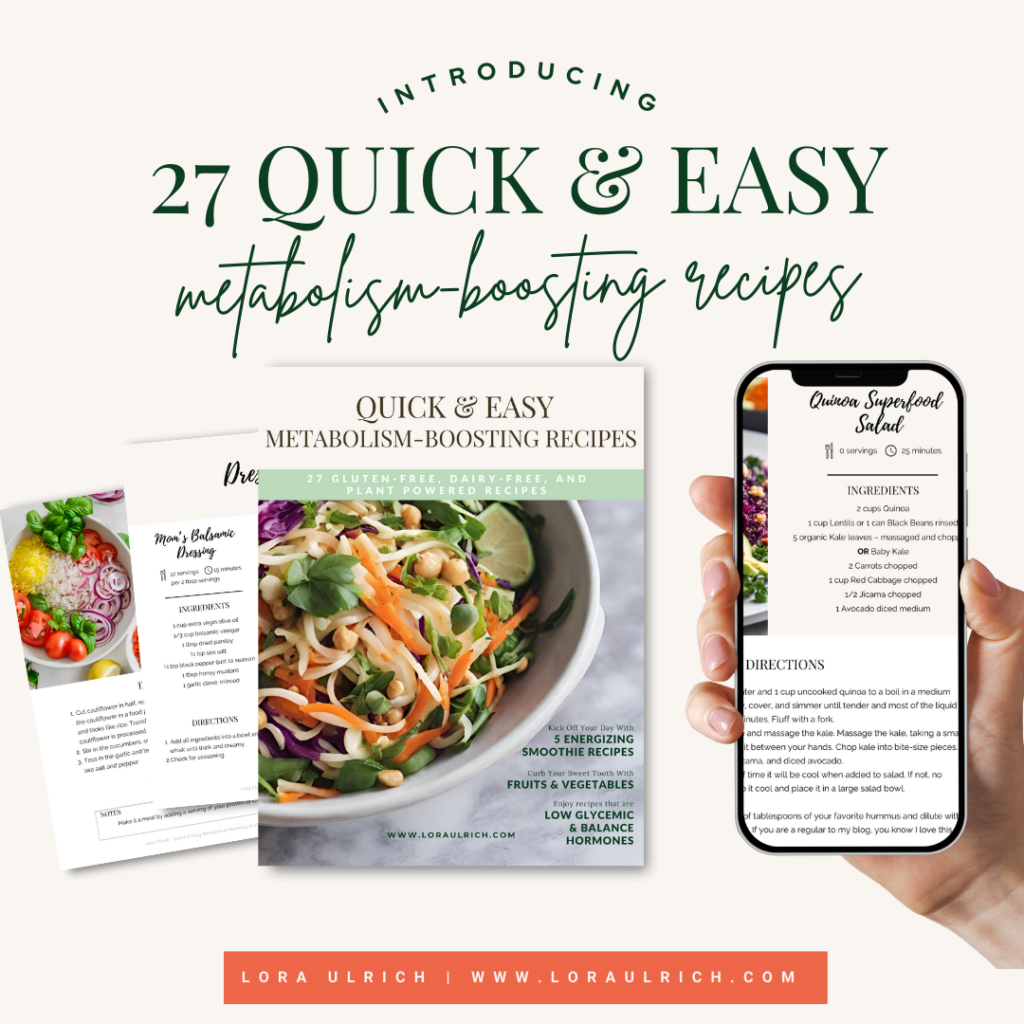
+ show Comments
- Hide Comments
add a comment